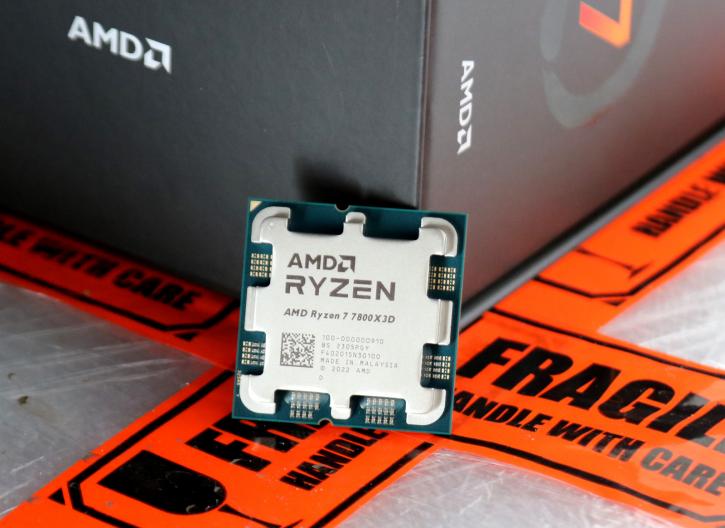Introduction
Ryzen 7 7800X3D reviewLightning-Fast Gaming performance with 8 Cores and 16 Threads
The AMD Ryzen 7 7800 X3D is the latest addition to AMD's processor lineup, boasting 8 cores and 16 threads that can handle multiple tasks simultaneously without slowing down. This processor delivers lightning-fast processing speeds with a base clock speed of 4.2 GHz and a maximum boost clock frequency of 5.0 GHz.Built using AMD's 7nm Zen 4 architecture, the Ryzen 7 7800 X3D offers improved performance, power efficiency, and overall stability compared to previous generations of processors. It also comes with a larger L3 cache size of (+64MB), which enhances its performance in games and specific creation workloads and applications. The Ryzen 7 7800 X3D features AMD's own 3D V-Cache stacked atop a CPU chiplet, and it is believed to have two CCD's under the hood, with the one holding 64MB X3D cache being enabled. This makes it a powerful processor that is sure to impress gamers and creators alike. The Ryzen 7 7800 X3D will be available on April 8, joining AMD's lineup that includes the 16-core 7950X3D and 12-core 7900X3D processors. While the 7950X3D and 7900X3D processors are designed to compete with Intel's "Raptor Lake" Core i9-13900K and Core i7-13700K processors, respectively, the Ryzen 7 7800 X3D offers an affordable option for those who don't require as many cores.
- Ryzen 9 7950X3D for $699
- Ryzen 9 7900X3D for $599
- Ryzen 7 7800X3D for $449
No Software Dependency for 7800X3D Processor with one Active CPU Die
The AMD Ryzen CPU, equipped with 8 cores, 16 threads, and a whopping 104MB cache (32 MB CCD, 64 MB V-Cache + 8 MB L2), is the perfect choice for gamers. It has a base clock of 4 GHz, which may be at least 500 MHz slower than the Ryzen 7 7700X, but has a boost clock of 5.0 GHz, ~400 MHz slower than the Ryzen 7 7700X. Unlike other processors in the 3D V-Cache series, AMD used just one chiplet to add an additional 3D V-Cache layer. The dual chiplet design of the AMD Ryzen 9 7950X3D and 7900X3D causes an imbalance as they switch between non-V-Cache and V-Cache CCD, depending on the load. However, AMD's algorithm addresses this issue for the bigger part.
As a result, the operating system must make decisions on thread prioritization. However, since the 7800X3D processor only has one die activated, there is no need for software dependency. This eliminates the inconvenience mentioned in our 7950X3D review and results in reduced latency and CPU overhead. For games that benefit from X3D cache, that means this processor can even be a notch faster (in gaming). The AMD Ryzen 7 7800X3D CPU is not only a member of the latest 3D V-Cache Zen 4 series, but also comparatively more economical than its counterparts. The Ryzen 9 7950X3D and 7900X3D are available on the official website of the company for $699 and $549, respectively. The price for the Ryzen 7 7800X3D, on the other hand, is $449, making it a more cost-effective option.


